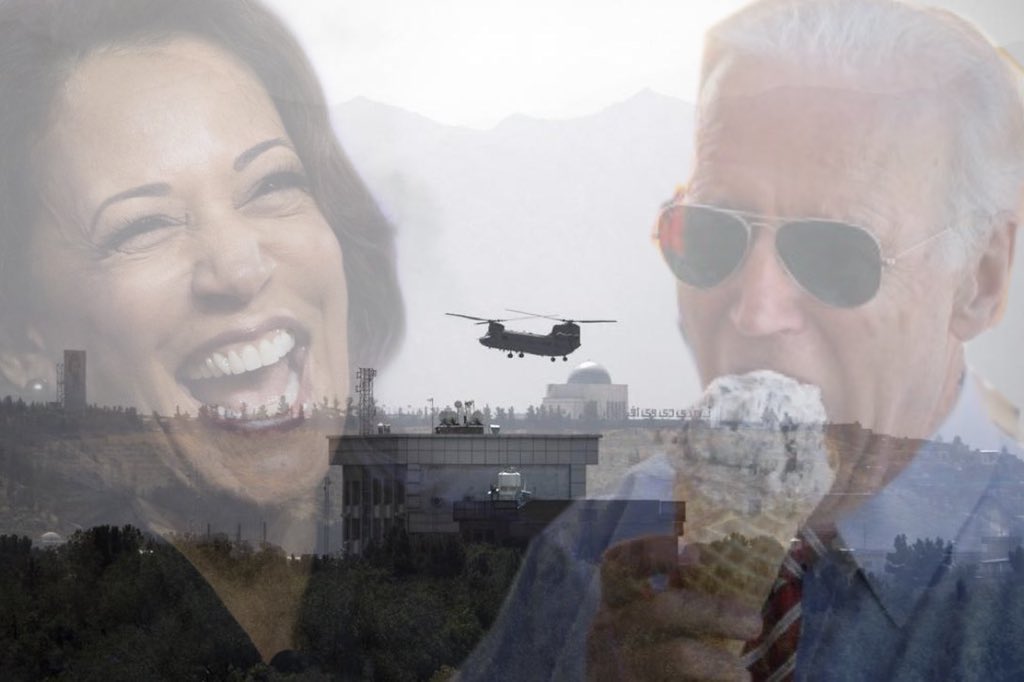https://www.npr.org/2021/08/17/10283291 ... nsequences
6 Political Takeaways For President Biden From The Chaotic Afghanistan Withdrawal
Domenico Montanaro, August 17, 2021
If there's one thing an American president doesn't want to see, it's the kind of pictures that have played out on cable news of the chaos in Kabul — crowded runways of people desperate to get out, with some hanging from the outsides of U.S. cargo planes and, for those lucky enough to get in, crammed on the floor.
There are humanitarian concerns facing the Afghan people. But the disorganization and confusion of President Biden's full U.S. military withdrawal of Afghanistan have also put him in a political hole. After doing what three presidents before him didn't — or wouldn't — do even if they advocated for it, Biden is facing a bipartisan backlash.
On Monday, he took a degree of responsibility, saying the buck stops with him, but he mostly blamed Afghan leaders and forces and defended the larger policy direction.
"American troops cannot and should not be fighting in a war and dying in a war that Afghan forces are not willing to fight for themselves," Biden said in remarks, noting the $1 trillion and nearly 20 years the U.S. has spent there since the 9/11 attacks.
Here are six takeaways on what the withdrawal might mean for Biden:
1. The chaotic withdrawal cuts against Biden's competence narrative
If there was one thing Biden ran on in 2020 against President Donald Trump, it was the idea that he knows how to govern competently. It was an underpinning of what his presidency was supposed to stand for — as the antithesis of Trump.
What's happened in Afghanistan over the past week — with troops being sent back in to help with the evacuation — is a gut punch to that narrative, even if the policy direction winds up being one Americans agree with in the long run.
2. Presidents should never offer rosy assessments or predictions
Biden promised that the U.S. would exit Afghanistan in a safe and orderly way, that there would be no hasty rush to the exit, and that it was "highly unlikely" that there would be a Taliban takeover of the entire country — let alone this quickly.
Those assurances all turned out to be wrong. And it's not the first time this has happened during Biden's presidency. Speaking on July Fourth, Biden warned about the delta variant, but declared that the U.S. was moving toward "independence" from the coronavirus. Then delta drove this latest surge.
It's a lesson that Biden should have learned in his decades in Washington, D.C. — it's never a good idea for a president to make predictions he has no control over.
Arguably, had Biden been more measured in his assessment of the withdrawal, the political backlash might not be so swift.
3. Biden is reflecting a new consensus of America turning inward
America's post-World War II role in the world was defined by an alliance with Western democracies and a Cold War against Russia. But since the fall of the Iron Curtain and 9/11, the U.S. role in the world has been less well-defined.
After years of war, economic turmoil and a pandemic, America appears ready to turn inward with more of a focus on domestic problems.
.....
Gautam


